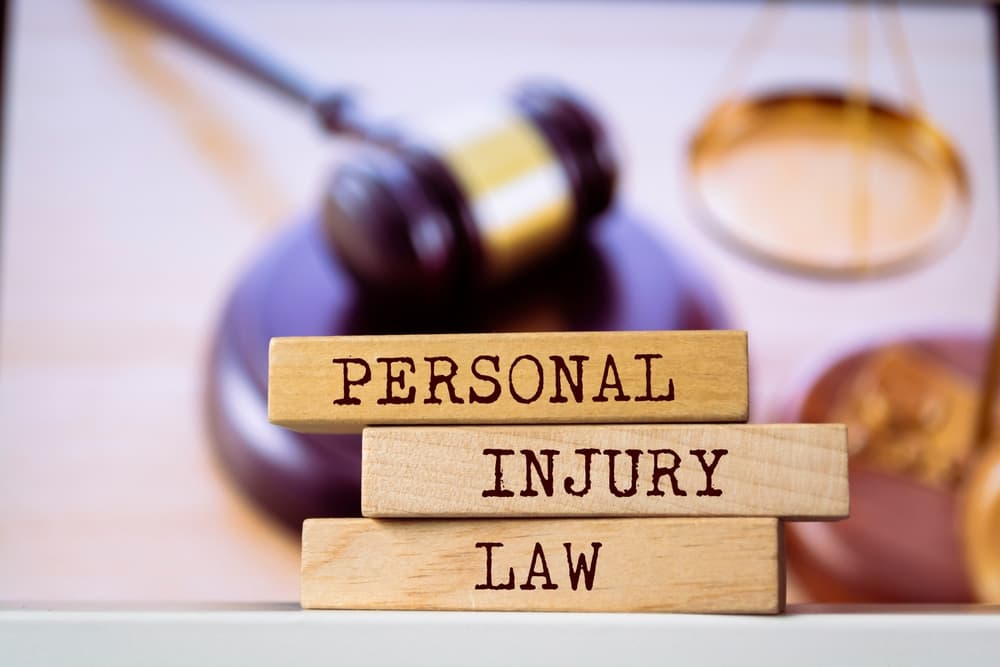In Texas, you generally have two years from the date of an accident to file a lawsuit and claim an injury, but this deadline can be complicated and has critical exceptions. This timeline is crucial for protecting your right to seek compensation for your medical bills, lost wages, and pain. For this reason, you should contact an experienced personal injury lawyer as soon as possible to discuss your case.
Key Takeaways for How Long You Have After an Accident to Claim Injury
- Texas law generally provides a two-year period, known as the statute of limitations, for filing a personal injury lawsuit after an accident.
- This two-year clock typically starts on the day the injury-causing incident occurred.
- There are specific exceptions that can extend or shorten this deadline, such as when the injury is not discovered immediately or when the claim is against a government entity.
- Failing to file a claim within the legally allowed timeframe will likely result in the court dismissing the case, permanently preventing financial recovery.
- Symptoms for serious injuries, like traumatic brain injuries (TBIs) or internal damage, may not appear for days or weeks after the initial accident.
Understanding the "Statute of Limitations" for a Texas Injury Claim

After being hurt in an accident, you may hear the legal term "statute of limitations." In simple terms, this is a law that sets a strict time limit on your right to file a lawsuit in civil court. Think of it as a legal deadline. Each state has its own statutes of limitations for different types of cases.
For most personal injury cases in Texas, including those from car, truck, or motorcycle accidents, the deadline is set by the Texas Civil Practice & Remedies Code § 16.003. This law states that a person must bring a lawsuit for personal injury no later than two years after the day the cause of action accrues, which usually means the date of the accident.
This two-year deadline is one of the most important factors in any personal injury claim. If you try to file a lawsuit after this window has closed, the person or company you are suing can ask the court to dismiss your case based on the missed deadline, and the court will almost certainly agree. This means you would lose your right to seek financial compensation through the court system, no matter how strong your case is or how severe your injuries are.
Why Do These Deadlines Exist?
It might seem unfair to put a time limit on a person's right to seek justice, especially when they are recovering from a serious injury. However, these laws exist for a few key reasons that are meant to ensure the legal process is fair for everyone involved.
- Preserving Evidence: The more time that passes, the harder it is to find reliable evidence. Physical evidence from an accident scene, like skid marks on a highway like I-20, can disappear. Vehicles may be repaired or salvaged, and digital records like security camera footage can be erased.
- Ensuring Witness Accuracy: Human memory fades over time. A witness who saw a drunk driving accident in Tyler will have a much clearer recollection of events a few months later compared to a few years later. The statute of limitations encourages claims to be brought while memories are still fresh and reliable.
- Providing Closure: These deadlines provide a point at which potential defendants are no longer at risk of being sued for a past event. This allows individuals and businesses to have a sense of finality and move forward without the indefinite threat of a lawsuit.
These practical reasons are why the courts strictly enforce the statute of limitations, making it vital to understand how it applies to your situation.
Exceptions That Can Change Your Two-Year Deadline
While the two-year rule is the standard for most injury claims in East Texas, the law recognizes that some situations are not so straightforward. There are important exceptions that can "toll" the statute of limitations, which is a legal term for pausing the clock, or change the start date of the countdown.
The Discovery Rule: When You Don’t Know About the Injury Right Away
Sometimes, the harm from an accident isn't immediately obvious. You might walk away from a car wreck feeling a little sore, only to find out weeks later that you have a herniated disc that requires surgery. Or, the symptoms of a traumatic brain injury (TBI) might be subtle at first and only become apparent over time.
This is where the "discovery rule" can apply. This rule states that the two-year clock doesn't start ticking until the date you knew, or reasonably should have known, about your injury.
For example, imagine you were in a multi-vehicle pile-up on US-69. You received treatment for cuts and bruises but were released from the hospital. A month later, you start experiencing severe headaches and memory problems, and a doctor diagnoses you with a TBI from the car crash. Under the discovery rule, your two-year window to file a claim would likely start from the date of your TBI diagnosis, not the date of the accident itself. Proving when you "should have known" can be complex, and it often becomes a key point of disagreement in a legal case.
Claims Involving Minors or Incapacitated Individuals
The law provides special protections for those who are not legally able to file a lawsuit on their own behalf.
- Minors: If a child under 18 is injured, the two-year statute of limitations is typically tolled until their 18th birthday. This means the two-year clock begins on the day they become a legal adult, giving them until their 20th birthday to file a lawsuit.
- Mental Incapacity: If a person is of "unsound mind" or mentally incapacitated at the time of the accident, the deadline may be paused until their legal disability is removed.
These exceptions ensure that the most vulnerable individuals are not unfairly prevented from seeking justice due to their age or condition.
How Long Do You Have to Claim an Injury in Different Types of Accidents?
For most personal injury incidents—car crashes, 18-wheeler accidents, motorcycle wrecks, and premise liability cases (like a slip and fall)—the general two-year statute of limitations applies. However, there is a massive and critical exception you must be aware of: claims against the government.
Critical Deadlines for Claims Against a Government Entity
If your injury was caused by the negligence of a government employee or happened on government property, you face a much shorter and more complex timeline. Under the Texas Tort Claims Act, you must provide a formal "notice of claim" to the correct government agency long before you can file a lawsuit.
How short is this deadline?
- For a state government agency: You generally have six months from the date of the incident to provide a formal written notice of your claim.
- For a city or local government: The deadline can be even shorter. Many city charters require notice within 45, 60, or 90 days.
Missing this initial notice deadline can completely bar you from ever recovering compensation, even if you are still within the two-year statute of limitations to file the lawsuit. This is a trap that many people fall into. For instance, if you were injured by a city-owned vehicle in Longview or Jacksonville, you would need to act extremely quickly to preserve your rights.
This is why, regardless of the type of accident, it's so important to understand the specific rules that apply to your situation as soon as possible.
Beware of Delayed Injury Symptoms

It is incredibly common for the full extent of an injury not to be felt immediately after an accident. The adrenaline and shock can mask pain, and some conditions take time to develop. You should never assume you are "fine" just because you don't feel severe pain right away.
According to research from sources like the Centers for Disease Control and Prevention (CDC), symptoms of a mild TBI or concussion may not show up for hours or days. Be watchful for delayed symptoms such as:
- Headaches or neck pain that worsens over time
- Numbness or tingling in your hands and feet
- Dizziness or trouble with balance
- Difficulty concentrating or memory problems
- Ringing in your ears (tinnitus)
- Back pain that appears days later
If you begin experiencing any new or worsening symptoms, seek medical attention immediately. Don't dismiss them as unrelated. Promptly connecting these symptoms to the accident is crucial for both your health and any potential injury claim.
Your Path Forward in East Texas
The two-year statute of limitations in Texas is a firm deadline, and the exceptions are complex. The early notice requirements for claims against the government make it even more critical to act swiftly.
You are not just dealing with a legal deadline; you are managing medical treatments, financial pressures, and the emotional toll of an unexpected injury. Understanding your rights and the timelines involved can empower you to make the best decisions for yourself and your family as you work toward recovery.
FAQs: How Long After an Accident Can You Claim Injury?
We understand you have many questions. Here are answers to a few common ones we hear.
What if the other driver's insurance company is already offering me a settlement?
It is common for insurance adjusters to contact injured individuals quickly and offer a settlement. While it may be tempting to accept, these initial offers are often far less than what you may need to cover your long-term medical care and other losses. Cashing a check or signing a release form will almost always prevent you from seeking any further compensation, even if your injuries turn out to be more severe than you first thought.
Does the two-year deadline apply to property damage claims too?
Yes, in Texas, the two-year statute of limitations also generally applies to claims for damage to your property, such as your vehicle. This means you have two years from the date of the accident to file a lawsuit to recover the costs of repairs or the value of your car if it was totaled.
What if I am partially at fault for the accident in Texas? Can I still claim an injury?
Texas follows a "modified comparative fault" rule, also known as the 51% bar rule. This means you can still recover compensation as long as you are not found to be 51% or more at fault for the accident. However, your recoverable amount will be reduced by your percentage of fault. For example, if you are found 20% at fault, your final compensation award would be reduced by 20%.
How is the "date of the accident" officially determined for the deadline?
The date of the accident is typically the calendar day on which the incident occurred. This is usually documented in the official police report. The two-year clock begins the day after the incident and expires exactly two years later. If the deadline falls on a weekend or a court holiday, it is usually extended to the next business day.
Can I reopen a personal injury claim after it's been settled?
Generally, no. When you settle a personal injury claim, you sign a release agreement. This is a legally binding contract in which you agree to accept a certain amount of money in exchange for giving up your right to pursue any further claims related to that accident. This is why it is so important to fully understand the extent of your injuries and future needs before ever agreeing to a settlement.
Richards Penn Bonner, LLP: Statewide Service, East Texas Roots

At Richards Penn Bonner, LLP, our team is dedicated to helping people across East Texas understand their rights and pursue the accountability they deserve. With more than 80 years of combined experience, we have a deep familiarity with the challenges our neighbors in Jacksonville and the surrounding communities face after a life-altering injury.
We believe that every person’s story deserves to be heard. We take the time to listen, understand your unique situation, and provide the compassionate and determined advocacy you need. If you’ve been injured and have questions about the deadline to file a claim, contact us today at 903-CALL-RPB or through our online form for a free, no-obligation consultation. Let us help you get the justice and compensation you deserve.